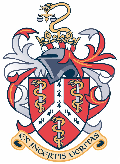Forensic Science Subcommittee
FSSC Meeting Dates
Monday 10 November 2025 10:00
FSSC Members
The current Chair of the Forensic Science Subcommittee (FSSC) is Prof. Margaret M. Stark
Should you like to contact the chair please send an email to forensic.medicine@fflm.ac.uk.
Subcommittee Members
Tana Adkin KC, FSSC Legal Representative, Barrister
Bernadette Butler, Forensic Physician, FFLM Immediate Past President
Susan Carney-Gannon, Chartered Society of Forensic Sciences
Nat Cary, British Association of Forensic Medicine Forensic Pathologist
Raymond Chapman, Metropolitan Police Service Consultant Forensic Biologist
Laura Dean, Forensic Physician
Edward Doyle, Scottish Government Senior Medical Advisor
Andrea Edwards, Independent National Forensic Advisor Forensic Biologist
Sue Fewkes, UKAFNP Vice-President Forensic Nurse
Michelle Gaskell, Forensic Quality Specialist, Forensic Capability Network
June Guiness OBE, Office of the Forensic Science Regulator, Home Office
Amy Hamm, Forensic Physician
Kranti Hiremath, Forensic Physician
Hassan Kurimbokus, Forensic Toxicologist, Toxicology UK Ltd
Rachel Morgan, Cellmark Forensic Reporting Scientist
Detective Sergeant Richard Newall, NPCC Staff Officer, Adult Sexual Offences Portfolio
Emma Paddock, Forensic Biology Reporting Scientist, Eurofins Forensic Services
Fiona Perry, Eurofins Senior Forensic Toxicologist
Keeley Roe, Forensic Nurse
Carol Rogers, Scottish Police Authority Forensic Operations Lead
Margaret Stark, Specialist in Forensic & Legal Medicine
Hiang Boon Tan, Forensic Physician
Jo Taylor, College of Policing
Bronagh Tumelty, Forensic Service Northern Ireland
Marie-Elle Vooijs, Sexual Offence Medicine Lead
Alexandra Williams, Reporting Manager – Biology, Key Forensic Services
Stuart Wiseman, Scenesafe Sales Director
Aims & Objectives
Aims
To ensure that patients being seen in a forensic medical setting (complainants, complainers, and suspects, of all ages, and by the circumstances of the encounter, likely to be vulnerable) receive appropriate care, including the taking of all relevant forensic samples, using the current best evidence available in the field of forensic and legal medicine.
Objectives
- Maintain guidelines on forensic sampling which will be updated as there are developments in the field of forensic science in order to maximise the recovery of potential forensic evidence whilst minimising the distress to the examinee.
- Establish channels of communication between the FFLM, the Police and the forensic services and kit providers.
- Communicate good practice to forensic practitioners responsible for obtaining the samples and the teachers of those practitioners.
- Highlight and encourage areas where research or supporting data is required. Disseminate relevant information as necessary.
FSSC Newsletters
The FSSC review and revise the Recommendations for the collection of forensic specimens (next update due out July 2025).
The Committee also considers questions sent in by members of the FFLM and other interested parties. These are published in the FSSC’s newsletters.
You can view the questions and answers here.
National Forensic Kits
National Forensic Kits are now available from SceneSafe based on the FFLM Recommendations for the Collection of Forensic Specimens from Complainants and Suspects. The kits and their contents are listed below.
